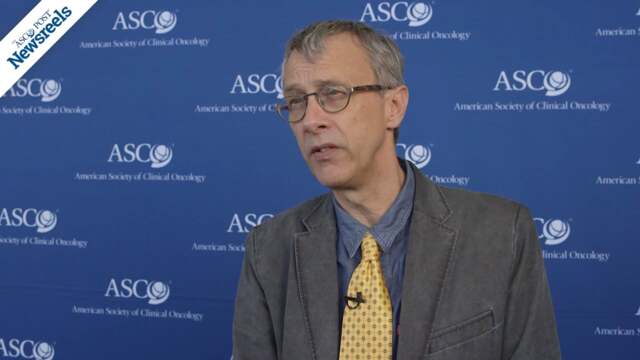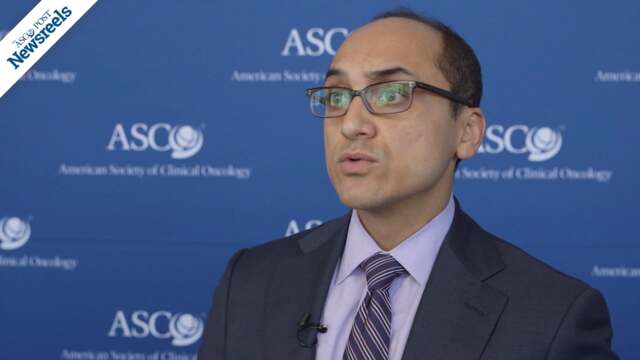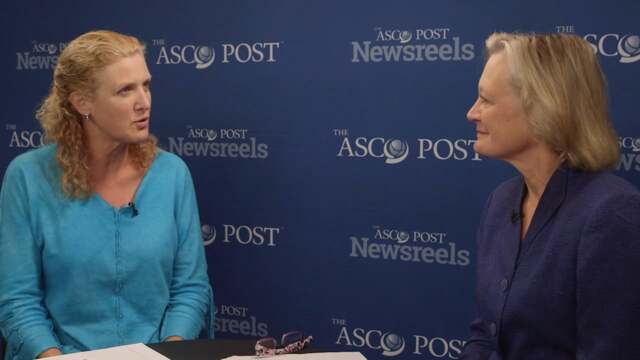Paul E. Goss, MD, PhD, on Postmenopausal Early-Stage Breast Cancer: Extending Letrozole Treatment
2016 ASCO Annual Meeting
Paul E. Goss, MD, PhD, of Massachusetts General Hospital Cancer Center and Harvard Medical School, discusses disease-free survival results from a study extending adjuvant letrozole for 5 years after completing an initial 5 years of aromatase inhibitor therapy alone or preceded by tamoxifen (Abstract LBA1).
Martin J. Van Den Bent, MD, PhD, of the Daniel den Hoed Cancer Center, discusses the interim analysis of the EORTC phase III study on concurrent and adjuvant temozolomide in anaplastic glioma without 1p/19q co-deletion (Abstract LBA2000).
James Kochenderfer, MD, of the National Cancer Institute, discuss results of a small study on genetically modified CAR-T cells, which may well become a standard lymphoma treatment (Abstract LBA3010).
Sumanta K. Pal, MD, of City of Hope, and Toni K. Choueiri, MD, of Dana-Farber Cancer Institute, discuss findings on BGJ398 in patients with previously treated advanced/metastatic urothelial carcinoma with FGFR3 alterations (Abstract 4517).
Yousuf Zafar, MD, of Duke Cancer Institute, summarizes his educational lecture on the financial toxicities of treatment and the need to focus on both short- and long-term interventions to reduce the burden on patients.
The
Lisa A. Carey, MD, of the University of North Carolina, and Julie Gralow, MD, of the University of Washington, discuss the most important data presented this year on treating breast malignancies (Abstracts LBA1, 500, and 507).





